Gaza: “It is a very special Easter, we are closer than ever to the crucified Savior”
The Christian community in Gaza is going through the worst period since the outbreak of the war
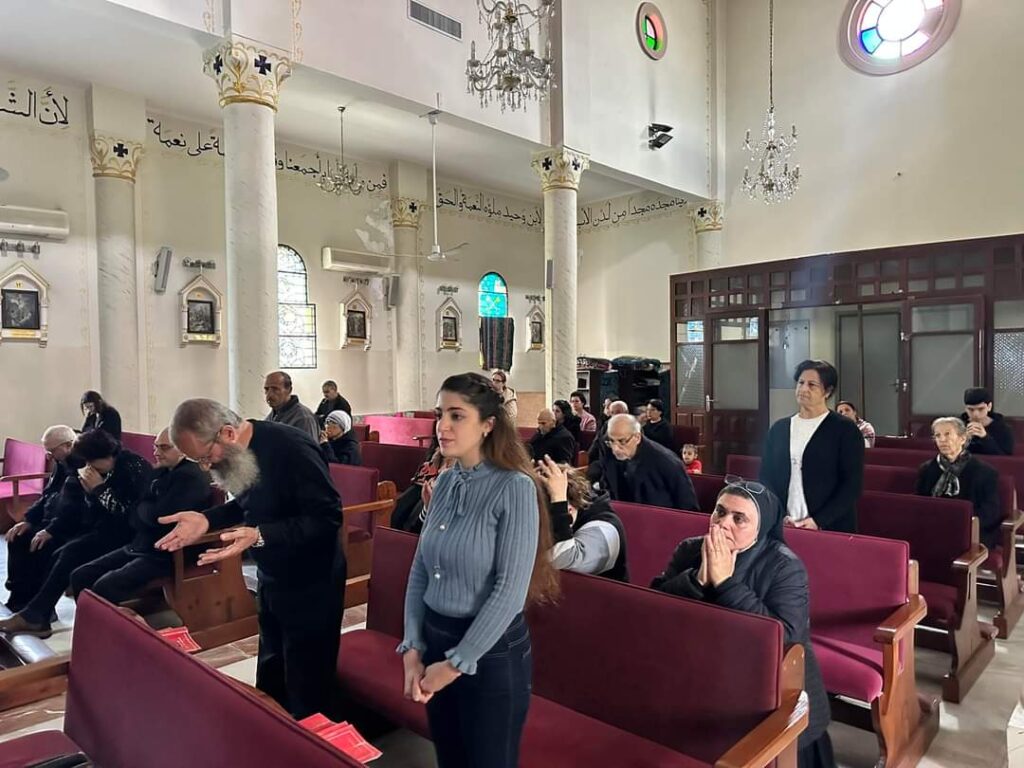
The phone lines are cut. Calls through online services are interrupted at every moment, you can barely understand what Sister Nabila is trying to say: “quite”, “good”, “or church”… Then the line goes dead; That’s how it has been for the last few weeks. Only a few written messages arrive from time to time: “We are fine.” But when one asks for more details, one realizes that “good” means “we are alive,” because the situation is distressing: “We don’t have enough, we lack everything.” But hope and gratitude are always present: “The little we have is due to the Grace of God. People outside suffer even more than us because they don’t have that comfort right now.”
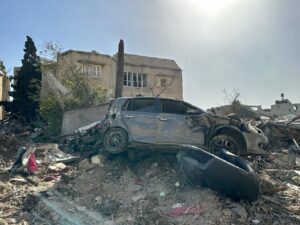
The Christian community in Gaza is going through the worst period since the outbreak of the war. Another Aid to the Church in Need (ACN) project partner, with whom the telephone line is stable, but whom the foundation prefers to remain anonymous for fear of reprisals, assures: “Our people are suffering minute by minute. Every time both sides talk about a truce, the intensity of military operations increases.” During the last two weeks, the Al Zeyton neighborhood, where the Holy Family parish is located, has suffered intense military clashes and bombings. This parish currently welcomes, according to information from ACN, 128 families – a total of 512 Christians – Catholics, and Orthodox, including 120 children under 18 years of age, including 60 with disabilities, and 84 people over 65 years of age on the premises parochial.
The food supply is very, very limited and “the problem has nothing to do with the availability of cash,” explains the same source, “food is simply scarce, and it is difficult to find where to buy it.” “The Christian community takes advantage of every possible opportunity to secure some drinking water and food,” confirms the project partner.
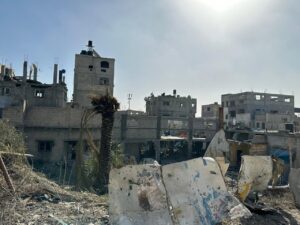
With the help of the ACN foundation, among other organizations, the Latin Patriarchate is able to provide two meals a week and a loaf of bread every two days per person. But on other days, the community has to live by managing their portions or trying to find food in other ways. “People walk for long hours to get a small box of food, which in the end is not even enough for three people. Due to this forced diet, sharing is becoming part of daily life and a new Christian identity,” he tells ACN.
Drinking water is one of the serious challenges at the moment. “We have dirty water for toilets and sanitary units, but for drinking the water is being purified using traditional methods.” Another serious problem is the health situation. As a result of the shortage, many people have lost weight. “The children are suffering from a virus that causes nausea and diarrhea and four of the elderlies are facing serious illnesses and would require immediate hospitalization, which is impossible at this time.”
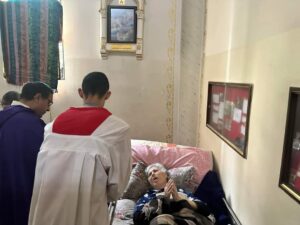
However, faith is something that encourages this small community, says the project partner. In the parish, in addition to the celebration of daily mass, catechesis sessions and rosary prayers, activities for children and meetings for healing trauma through prayer are organized. Involved in these activities are the staff of the Thomas Aquinas Catholic Center, which is now also in the parish area, after its building was bombed.
The priest and the nuns, like Sister Nabila, who take care of the people, do a heroic job. “They are all exhausted, no one can really experience what they are experiencing. But with God’s grace, our children are now even closer to their faith than ever before. It is a very special Easter, we are closer than ever to the crucified Savior,” he concludes.
Although communication with Sister Nabila is very difficult, there is a never-missing request that asks the foundation to convey to everyone: “Pray for us, pray for the entire population so that this war ends.”
Related

Pope Francis spent a peaceful night
Exaudi Staff
02 March, 2025
1 min
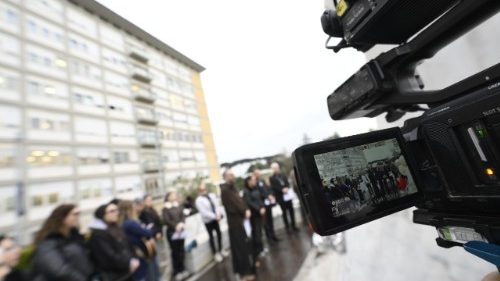
Pope Francis has had a peaceful night
Exaudi Staff
25 February, 2025
1 min

What should the boyfriend or girlfriend I should find be like?
Patricia Jiménez Ramírez
24 February, 2025
4 min
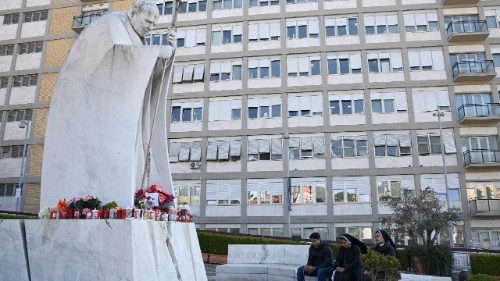
The Pope spent a quiet night at Gemelli
Exaudi Staff
23 February, 2025
1 min
 (EN)
(EN)
 (ES)
(ES)
 (IT)
(IT)

